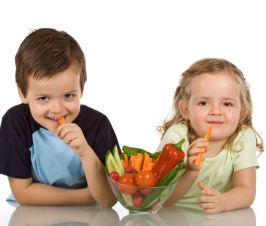There is growing concern surrounding social media addiction, especially in children. This concern is reasonable, and more and more researchers are beginning to study the similarities between technological addiction and drug addiction.
The variable-reward of ‘Likes’
The feeling that people get when they see a ton of likes on an Instagram or Facebook post is a similar process of what happens in the brain of drug addicts. It’s a reward system, and the brain is being activated to let us know that it’s something pleasurable. All addictions work through a variable-reward system.
What’s a variable-reward system?
A variable-reward system is when someone gets a reward – a pleasurable sensation – after doing something, but not every time. So, they don’t know when the next good feeling is going to happen. With drug addiction this creates an inclination to be hyper-alert to cues that are associated with the drug of addiction. When we think about social media, this could be the sound of an alert message, which turns into compulsively checking a phone.
10 percent of Americans could meet criteria for social media addiction
Recent estimates say that as many as 10 percent of Americans could meet the criteria for social media and video game addiction. It has a variable-reward, as well as feelings of anxiety when not using it. The same dopamine producing effect occurs in the brain from social media use as occurs when using other substances of addiction – sex, drugs, sugar.
There is a key difference
Self-control does seem to stay intact with social media use, as opposed to drug use. With drug addiction, the self-control system of the brain becomes dysfunctional, with the inability to curb use. With social media use, this does not seem to happen. For instance, if Facebook decided to charge users a fee per hour for its use, it is likely that use would decrease. This is not seen with drug use.
Children and Social Media
The biggest concern with social media is our children, who have brains that are much more malleable. The reward system of adolescents is fully activated and plays a huge role in the behavior and learning of teens. However, the self-control system is not fully developed until around 21 years of age. So, controlling use becomes more difficult.
What is being suggested is that with children who are exposed to social media, their reward system can be overstimulated, which can, in turn, increase their responsiveness to reward. Actual structural changes in the brain are beginning to be recorded in research of children who use social media excessively and in an addictive manner.
5 Tips to Prevent Social Media Addiction
- Talk About It– Just like talking about any other risky behavior, when children understand why they are more likely to respect it for what it is.
- Set Boundaries –HealthyChildren.org has created a Family Media Plantool, including a Media Time Calculator, to help families create boundaries for tech use that are in line with the values of the family.
- Putting Away Screens – practice what you preach. Putting away screens at the dinner table, when talking with other people, and before bed teaches children the appropriate times to use these devices. When parents practice these things, children are more likely to learn these good habits.
- Strike a Balance – It’s not about getting rid of social media, it’s about the amount of time one spends on it. The same with video games. Technology can be very useful. Finding how to maximize its use without sacrificing other areas of life is important.
- Turn Off Notifications –Constant alerts and messages that prompt one to check a phone creates a reward-response habit, which can be difficult to break.
Image Copyright: <a href=’https://www.123rf.com/profile_yacobchuk’>yacobchuk / 123RF Stock Photo</a>
 Razi Berry is the founder and publisher of the journal Naturopathic Doctor News & Review that has been in print since 2005 and the premier consumer-faced website of naturopathic medicine, NaturalPath. She is the host of The Natural Cancer Prevention Summit and The Heart Revolution-Heal, Empower and Follow Your Heart, and the popular 10 week Sugar Free Summer program. From a near death experience as a young girl that healed her failing heart, to later overcoming infertility and Chronic Fatigue Syndrome and Fibromyalgia though naturopathic medicine, Razi has lived the mind/body healing paradigm. Her projects uniquely capture the tradition and philosophy of naturopathy: The healing power of nature, the vital life force in every living thing and the undeniable role that science and mind/body medicine have in creating health and overcoming dis-ease. Follow Razi on Facebook at Razi Berry and join us at Love is Medicine to explore the convergence of love and health.
Razi Berry is the founder and publisher of the journal Naturopathic Doctor News & Review that has been in print since 2005 and the premier consumer-faced website of naturopathic medicine, NaturalPath. She is the host of The Natural Cancer Prevention Summit and The Heart Revolution-Heal, Empower and Follow Your Heart, and the popular 10 week Sugar Free Summer program. From a near death experience as a young girl that healed her failing heart, to later overcoming infertility and Chronic Fatigue Syndrome and Fibromyalgia though naturopathic medicine, Razi has lived the mind/body healing paradigm. Her projects uniquely capture the tradition and philosophy of naturopathy: The healing power of nature, the vital life force in every living thing and the undeniable role that science and mind/body medicine have in creating health and overcoming dis-ease. Follow Razi on Facebook at Razi Berry and join us at Love is Medicine to explore the convergence of love and health.

















